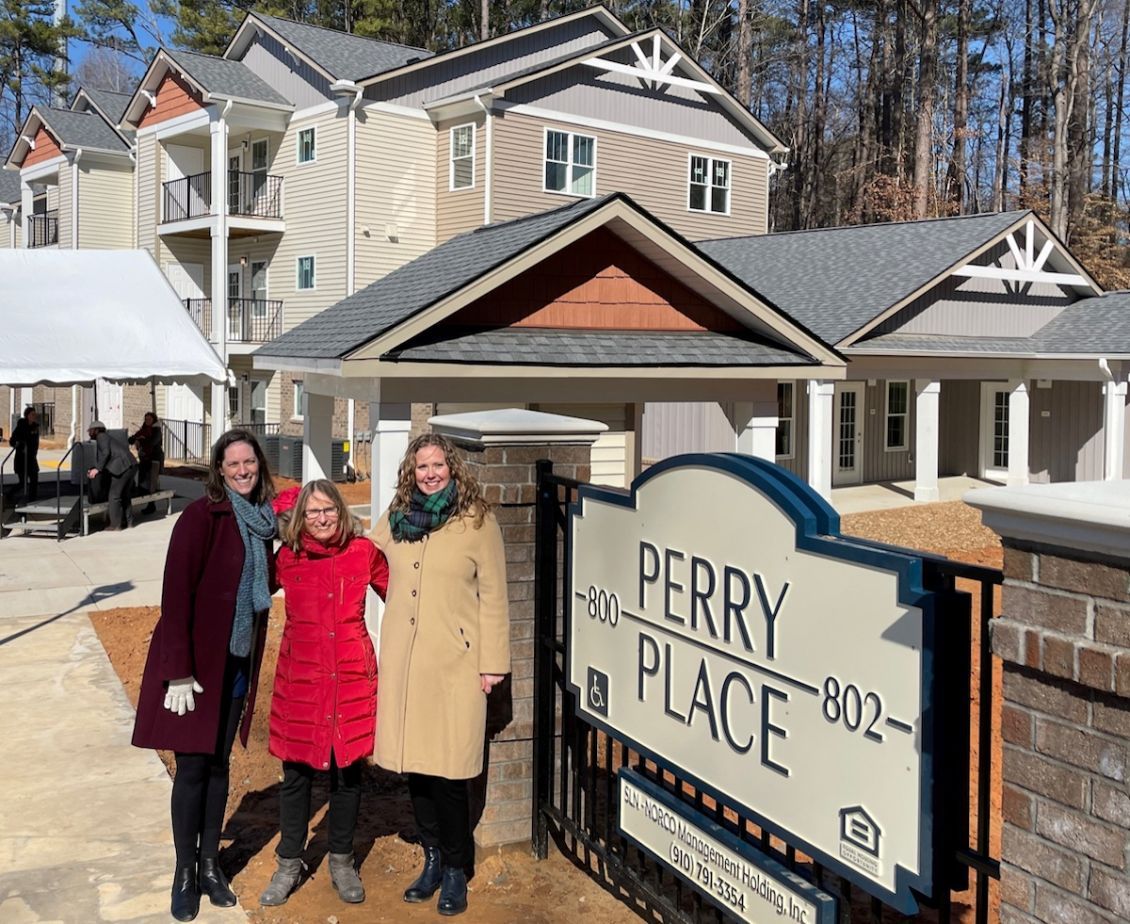For more than 30 years, CASA has provided stable, affordable housing in North Carolina’s Research Triangle, which is home to three major research universities and high-tech companies in the state’s Piedmont region. Even within this prosperous area, many households struggle with market-rate rents, face and experience homelessness, and have special needs unmet by traditional housing.
We spoke with Jess Brandes, CASA’s senior director of real estate development, about the nonprofit’s history, mission, and accomplishments as well as future plans.
Say a little bit about the work that you do at CASA.
CASA is an affordable housing developer and property management company. We build, own, and manage over 500 apartments in the Triangle area of North Carolina, specifically focused on permanent supportive housing for those who are homeless and who have disabilities. Most of our tenants earn well below 30% of area median income (AMI) and have experienced homelessness. All CASA tenants have access to supportive services and community connections through our staff and through our partner networks.
How are HUD’s Capacity Building Section 4 funds used by your organization?
The Section 4 funds are being used to support our growing real estate development team and to support our Leasing and Compliance team. These departments work to create more units of housing and then to support tenants in those units. CASA’s goal for every resident is that they never experience a return to homelessness. CASA has added 110 units of housing to our portfolio in this fiscal year, and we have over 100 more coming online next fiscal year. So, capacity building is more important than ever.
How have the last two to three years challenged you at CASA? What has been the hardest part of the experience for CASA? For your service population?
The toughest parts of the last few years for CASA have been supporting our residents through the pandemic and adapting to skyrocketing construction costs. During the pandemic and after-effects, many of our residents lost income, lost their support systems, lost their sense of safety, or all of the above. It has been very destabilizing for our already vulnerable population, and we have seen the impacts on residents requiring more support from us to maintain their housing. It has also been difficult to keep our new construction projects on track with costs increasing so much and so quickly.
What have you learned in this unique and challenging time? Will you make any permanent changes going forward?
We’ve learned a lot. Regarding resident support, CASA enlarged our behavioral health intervention team to include three full-time case management staff. That is a permanent change to how CASA directly responds to residents and connects them to services during periods of crisis or instability.
Like many organizations, we have shifted to a hybrid staffing model that has allowed us to broaden our talent pool beyond the Triangle to support some agency positions that can be done remotely.
What do you think will change about affordable housing over the next five years? How are you excited about CASA impacting that change?
I think affordable housing will continue to rise to the top of political platforms and community priorities. I think more private dollars will move into affordable housing since it is such a solid investment. I think communities are sick and tired of vulnerable residents finding themselves living on the streets, and we will see increased public investments in ending homelessness.
CASA has the expertise, experience, and vision to bring real permanent solutions to our communities, and we look forward to continuing to grow and meet the need. As we like to say, the causes of homelessness may be complex, but the solution is simple – housing!
What else should people know about CASA? What makes CASA unique as an organization in the affordable housing arena?
Part of what makes CASA unique is our heavy focus on 30% AMI. We rely on community donations to help with approximately 15% of our revenue annually in order to cover expenses beyond what our renters can afford. (Section 4) Grants like this one from Enterprise also help us continue to add units for the extremely low-income range to reach those that other affordable housing programs do not.
